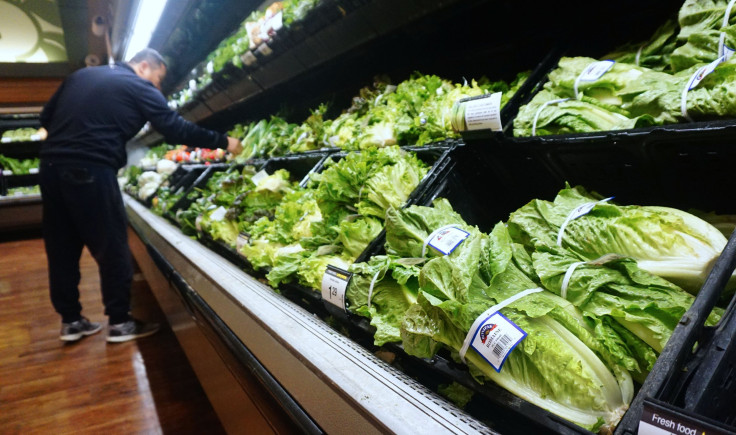Is It Safe To Eat Romaine Lettuce Now? CDC Offers Update
Fans of romaine lettuce salads may not totally be in the clear yet, but there is one slightly encouraging sign, according to the Center for Disease Control. The popular variety of lettuce has been linked to a widespread E. coli outbreak since last month, but the CDC said the contaminated lettuce may have passed its expiration date.
In a Wednesday news release, the CDC provided an update on the situation that has scared people away from buying romaine lettuce since mid-April. The good news is that any lettuce from the Yuma, Arizona, region, where the toxic lettuce was thought to come from, is most likely no longer for sale in stores.
E. coli update: The last romaine lettuce shipments from the Yuma growing region were harvested on April 16 and are now past their 21-day shelf life. The romaine lettuce being sold and served today is NOT the romaine linked to illnesses. https://t.co/OVzp31mVqi pic.twitter.com/NQLH5elQxL
— CDC (@CDCgov) May 16, 2018
“It is unlikely that any romaine lettuce from the Yuma growing region is still available in people’s homes, stores, or restaurants due to its 21-day shelf life,” the CDC said Wednesday. “The most recent illnesses reported to CDC started when romaine lettuce from the Yuma growing region was likely still available in stores, restaurants, and in peoples’ homes.”
The last shipments from the Yuma growing region were harvested on April 16. It takes two or three weeks for an E. coli illness to be reported to the CDC. Food and Drug Administration Commissioner Scott Gottlieb tweeted that “romaine currently available for purchase is not part of this outbreak investigation.”
However, he also noted that the problem is complicated and the contamination likely did not come from just one farm in Yuma. Investigators are still working to find the exact source of the contamination, which was first announced on April 10.

Wednesday’s CDC news release upped the total illness count to 172 people across 32 different states. Seventy-five people have been hospitalized and one person died in California. The Washington Post likened it to a 2006 E. coli outbreak in baby spinach, which eventually made more than 200 people ill.
The strain of E. coli present in the contaminated lettuce can cause vomiting, diarrhea and other symptoms.
© Copyright IBTimes 2025. All rights reserved.





















